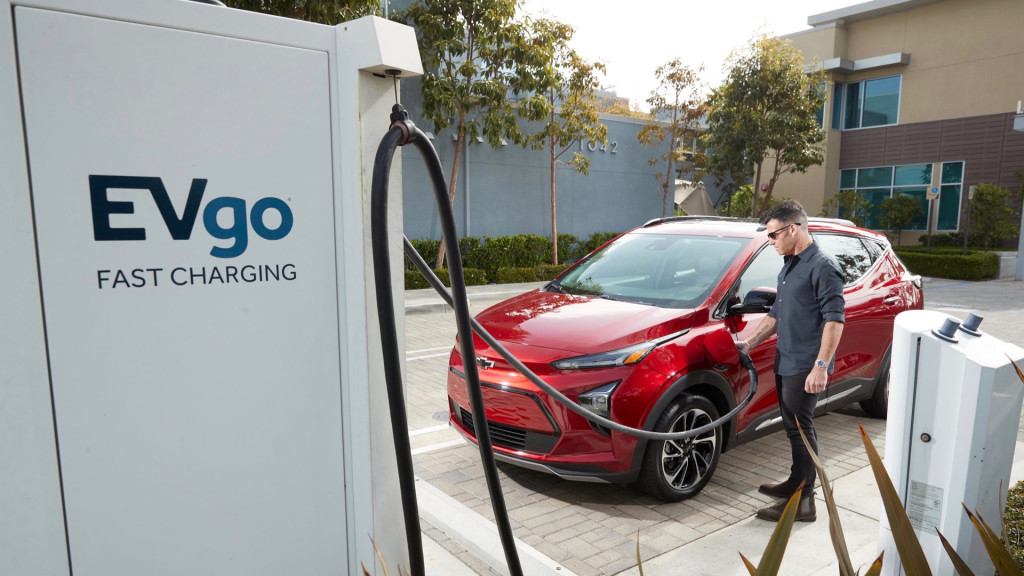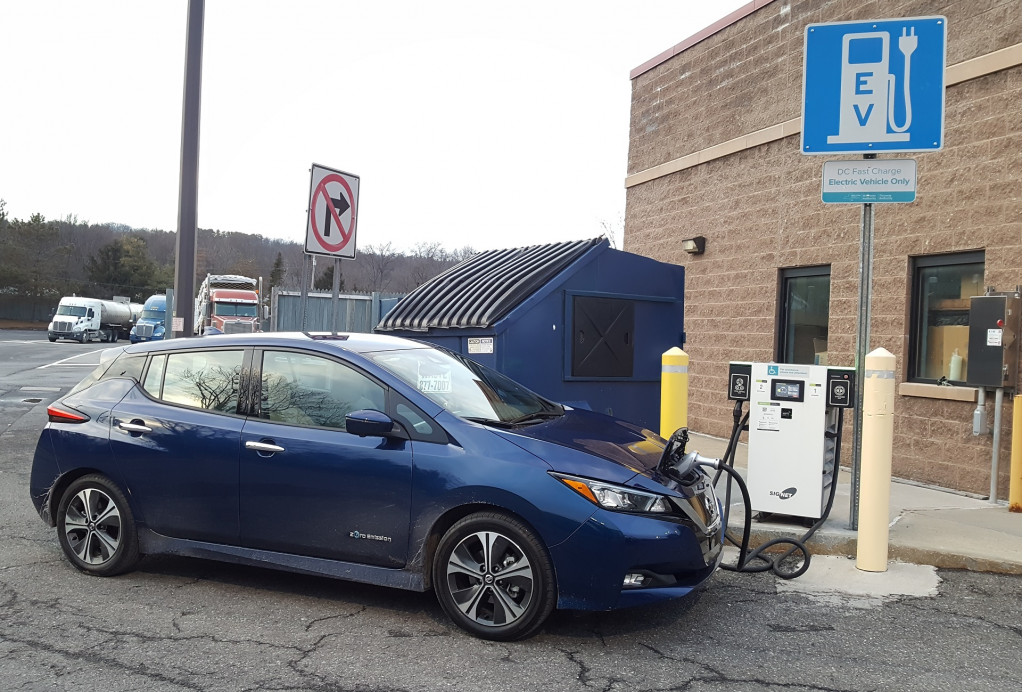The Biden administration held a meeting Wednesday with auto industry leaders to discuss electric vehicles and charging.
A major topic of discussion was the administration's goal of a national network of 500,000 EV charging stations, according to Automotive News (subscription required). The administration said in a statement that "there was broad consensus that charging stations and vehicles need to be interoperable and provide a seamless user experience, no matter what car you drive or where you charge your EV."
Auto industry executives in attendance included Tesla CEO Elon Musk, General Motors CEO Mary Barra, Ford CEO Jim Farley, Stellantis CEO Carlos Tavares, Lucid CEO Peter Rawlinson, and Nissan Americas chair Jeremie Papin, according to the report.

2022 Chevrolet Bolt EUV at EVgo fast-charging station
Executives from Hyundai Motor America, Subaru of America, Mazda North America, Toyota Motor North America, Mercedes-Benz USA, and Kia Motors America also took part, the report said.
Administration officials attending reportedly included Transportation Secretary Pete Buttigieg, Energy Secretary Jennifer Granholm, National Climate Advisor Gina McCarthy, and Infrastructure Coordinator Mitch Landrieu.
The Biden administration has been working to define critical points for its 500,000-charger national charging network for EVs. The network is a necessary piece for the administration's target of 50% EVs by 2030.

2018 Nissan Leaf with Greenlots fast charger by Dumpster at I-87 Modena travel plaza, Feb 2018
Interoperability as simple as Plug and Charge for billing has been very slow to roll out. Three years after we reported the first compatibility to the standard, not all charging networks or EVs are compatible. It's not a good sign for a future that includes bidirectional charging components, potentially from countless hardware-makers.
Musk has said that Tesla plans to open its Supercharger network to other EVs, but will charge extra for slow-charging models. Although comments filed by Tesla, which is also working to triple the size of the Supercharger network in just two years, indicate that with federal funds it might take a more open approach.
Congress last year approved $7.5 billion for the 500,000 charging stations, and the administration is now asking states to submit plans for how they would spend their shares of the funding. While that branch of the administration's EV policy is moving forward, a push to incentivize union-made EVs appears to have stalled.












